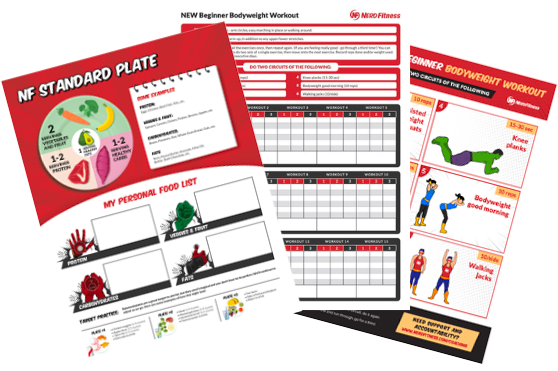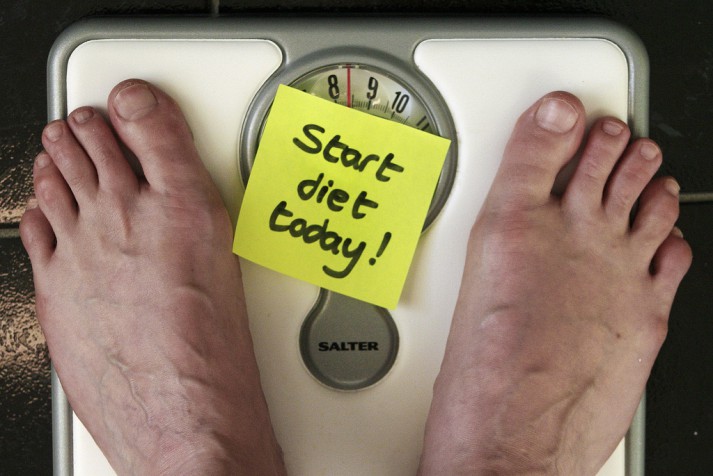
There are a million and one fitness products and diet systems out there to “help” you get healthy.
Because there are so many options, I get a million fitness emails a week (okay more like a few dozen) from Rebels asking me for my thoughts on certain programs and products that are popular.
Today I wanted to highlight the biggest/most successfully marketed programs out there, and give my humble thoughts on what I think is right and wrong with them, and how they could be better.
Not that they’re asking for my help, it seems like they’re doing quite well! But for the other few hundred people a week, let’s clear up what works and what doesn’t.
P90X and Insanity
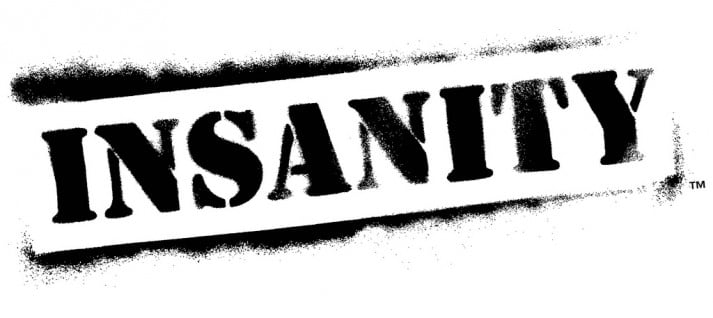
Muscle confusion! Tony Horton! Shaun T! Shred your muscles and get a killer INSANE workout!
P90X and Insanity are probably the two most successful fitness infomercial products in history. Tons of before and afters, a program you can complete at home, workouts that leave you gasping for air, and routines that focus on strength training rather than just cardio.
Is it all hype? Or are Tony Horton and Shaun T onto something here?
PROS: Honestly, I believe P90X and Insanity to be pretty solid programs…if you have time, willpower, and energy for it repeatedly for 90 days. If you are somebody that needs to feel beat up at the end of your workout to make it FEEL like a workout, and have 60-90 minutes every day to devote to fitness, then these programs here are built for you. On top of that, I’m a big fan of the fact that the programs are things that you can follow along with at home: put the DVD in, follow the instructions step by step, and 90 days later you’re in much better shape. Outsource your brain, follow instructions, boom
I do love the focus on strength training here, as I find that to be a much better boost to developing a great figure (and self confidence) more quickly than just steady cardio.
CONS: Now, the reason why P90X works is because you’re required to work out for 60-90 minutes, every day, for six days a week. On top of that, you’re also overhauling your diet to eat healthier. As we all know here at Nerd Fitness, your diet accounts for 80-90% of your success or failures when it comes to getting fit.
So, I’m not really surprised that training six days a week and changing your diet will result in a significant transformation.
My concern with these workout programs: It’s requires a MASSIVE commitment. Especially time. For people who don’t have that amount of time every day, it’s very easy to fall off the wagon after missing a day or two. On top of that, I’m not a big fan of feeling like I want to die at the end of a workout (which is one of the reasons I’m not a CrossFitter). Remember, the best plan is the plan you stick with. And not many people can stick with these plans.
Lastly: What happens when your 90 days are up? What happens if you go on vacation and don’t have access to the program? I’ve spoken with a lot of people who have had great 90 day transformations, but then returned to what they were doing before because they no longer had a DVD yelling at them.
If you fundamentally transform how you live your life permanently after your 90 days are up, GREAT! If you go back to old habits, you’ll end back up where you were.
There’s no addressing of the root problem: building solid foundational fitness habits!
Final word: If you tried P90X and didn’t make it through all 90 days, don’t beat yourself up. I run Nerd Fitness and I doubt I could last more than a few days! I only exercise for an hour a few times a week (along with walking), and I don’t like destroying myself with my workouts. I like to feel GOOD after I’m done
Weight Watchers

Weight Watchers is the juggernaut in weight loss programs.
Each type of food is worth a certain number of points – you have a daily point allotment and as long as you stay within your point total, you should lose weight.
Now, Weight Watchers has both an online component and an in-person component, where you go to weigh in on a regular basis and have a group of people to help keep you accountable.
Should you be watching your weight with these folks, or looking elsewhere?
PROS: I love the accountability part of Weight Watchers, and honestly I believe this to be the reason that it is successful for a lot of people. When you constantly surround yourself with people who are trying to better themselves and be healthy, it’s amazing what you’re capable of. I think accountability is such a strong factor when it comes to health and wellness, and Weight Watchers provides that in spades.
I’m also a fan of the fact that they make the entire eating process simple. I don’t necessarily agree with how that point system works, but I like that it simplifies the entire process
CONS: Ok, I have a few complaints about Weight Watchers:
- Their point system, although recently updated, is still firmly planted in the old conventional wisdom. “Whole grains are good. Fats are bad.” Some of their point values are very questionable. Pizza costs points, while toppings each certain points, too…regardless of whether or not it’s fresh chicken, broccoli, or processed sausage.
- The point system factors in very little when it comes to the quality of the food. They’d rather you eat a bunch of whole wheat pasta or low calorie processed snacks than real food. I’m talking about stuff like grassfed steak and veggies, or eggs and bacon. Worst of all, they ALSO happen to sell boxes of heavily processed, low-fat “health” food (packed with sugar and/or preservatives) that many people gobble up because they’re convinced the point value will help keep them healthy.
- You can become tethered to this point system. Every meal becomes a chance to become further addicted and neurotic about your eating choices. On top of that, people often find themselves with extra points at the end of the day, so they stuff their face with unhealthy foods to reach their point total because, “I have the points, might as well use them.”
- Their focus is weight loss. NF Team Member Staci was a member at Weight Watchers. She asked about the foods she was eating and was told “I don’t care if it’s healthy, as long as you lose weight.” Obviously not all Weight Watcher ‘leaders’ act like this, and I hope Staci’s case was a rare one – and I hope the dude was eventually fired! I DO worry that your body composition and overall health just isn’t valued as much as the scale, which can become a dangerous mentality.
Final word: Too much reliance on an outdated point system and the pushing of unhealthy sponsored products for my taste. Fantastic for the group accountability though, I just wish it had more emphasis on proper education and REAL food!
Nutrisystem
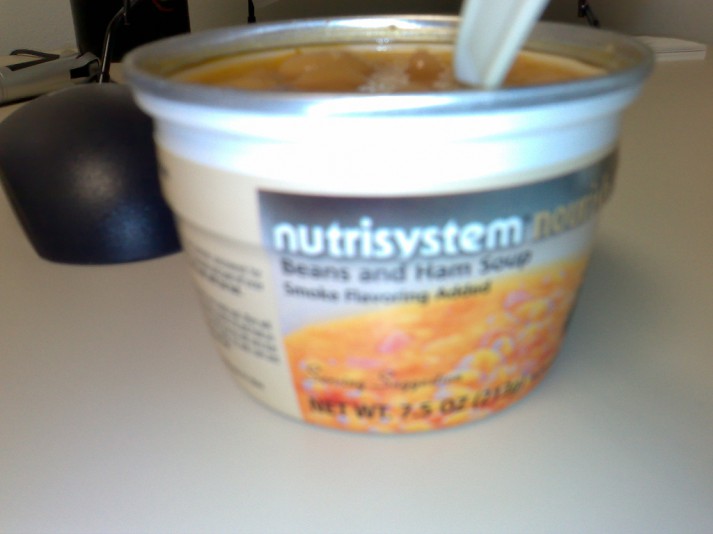
So freaking simple. Get your meals in the mail, stick them in the microwave, eat them, and wallah…lose weight. You get to eat things like pancakes, pasta, and cookies and still have success.
Plus, celebrities do it!
So, what’s the real story here? Is this a great way to lose weight while eating the foods you love, or is it a system designed to make you reliant upon their high profit food products?
PROS: I love the simplicity of Nutrisystem. You get meals in the mail, you stick them in the freezer, and then you heat them up for each meal and you will most likely lose weight. By following this plan perfectly, you’ll most likely end up eating fewer calories than you were consuming in the past. Eating less bad stuff than usual is a recipe for weight loss success in the short term.
Unfortunately, my praise for Nutrisystem stops at its simplicity.
CONS: If you think you are being healthy by eating muffins, strudel bars, pancakes, pasta, chocolate frosted donuts, chicken pot pie, and macaroni and cheese…you’re deluding yourself.
Nutrisystem is designed to appeal to people who want results but are less interested in building new healthy habits. These foods are all weak substitutes for their real counterparts, and I can’t imagine they’re nearly as good.
Personally, I’d rather take care of myself 90% of the time and then eat a REAL cookie or have a real slice of pizza every once in a while. Compared to stuffing my face daily with cheap pizza or cookie imitations and pretend like I’m being healthy, I’ll take the former!
Along with Weight Watchers, Nutrisystem is still grounded in conventional wisdom of “grains are good, fat is bad, avoid cholesterol” mentality. It also sounds like it breaks one of the rules of the Nerd Fitness Diet: “Eat real food!”
Also, like Weight Watchers, there is minimal education, little focus on healthy habit building, and no preparation for life beyond Nutrisystem. Because it’s SO simple, people often get thrown off completely when they travel, go on vacation, or can’t afford to keep buying meals through the mail. Nutrisystem makes money by making you dependent upon their system – which might work for a short time, but is unsustainable long term.
FINAL WORD: Yes, you lose weight when you eat less consistently. But are these meals healthy and providing you with the energy you need to feel great? I like Nutrisystem for its simplicity, but dislike it for its food quality, lack of education, and reliance upon unhealthy, unsustainable food system. We can do better!
Shakeology
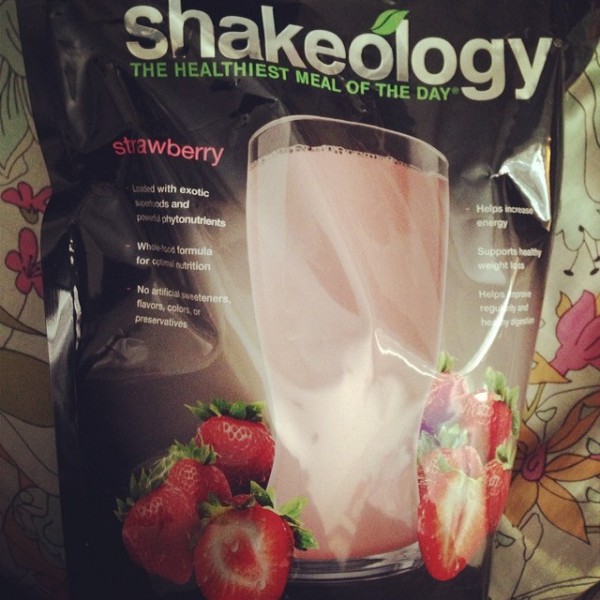
I had a friend recently ask about Shakeology on Facebook, and he received a ton of positive feedback from people who loved it.
The concept: Replace one of your meals each day with an easily prepared shake. The shakes from Shakeology allegedly “[use] 70 nutritious ingredients, help detoxify and protect the body against free radical damage, help fight food cravings, and even helps support a healthy libido!”
Not bad for a bunch of powder, eh? So what’s the deal?
PROS: Like Nutrisystem and Weight Watchers, I commend Shakeology for its simplicity. Take a meal, replace it with a shake, and lose weight. Although I’ve never actually tried shakeology or consumed one, people praise its taste, and a review of its ingredients seem like it has quality protein sources, a decent amount of protein per serving, a low amount of sugar.
If you are traveling, it’s easy to throw a pouch of Shakeology powder into your travel bag, grab a shaker bottle, and have a meal ready to go when you’re ready to go.
CONS: I’m not surprised people are losing weight with this plan if they follow it exactly. They are replacing a meal (probably 500-1000+ calories) with a Shakeology shake that only has 120-160 calories in it. That’s a reduction in daily caloric intake of 380-780 calories. Remember, just 500 fewer calories per day can result in a loss of a pound a week.
My big concern is that a meal of only 120 calories is NOT going to leave you satisfied and satiated – on top of that, I’m dubious of anything that has 70 ingredients in it!
Finally, I’m still hesitant of relying on a proprietary meal that I need to purchase in order for my “weight loss plan” to work. What happens when you run out of Shakeology powder, or you don’t have access to a blender, or you are on vacation? Can you still actively consume the same amount of quality calories and maintain the same nutritional profile?
I also cringe any time I see any marketing that mentions “detoxify” or “remove toxins” – that’s not actually a thing!
FINAL WORD: I can see something like this working for somebody who loves quick fixes and wants to lose 10 pounds, but doesn’t want to change their lifestyle permanently. Of course, after they lose their 10 pounds and stop doing Shakeology, they’ll most likely return to their old weight and have to repeat the process. As there’s no change in one’s diet habits, long term success will always seem elusive.
What I’d do instead: Why not make your own shake and not be reliant upon another propriety system? Try some frozen fruit, a scoop of whey protein, some frozen spinach, and coconut or almond milk. That’s what I do 
Juice cleanses
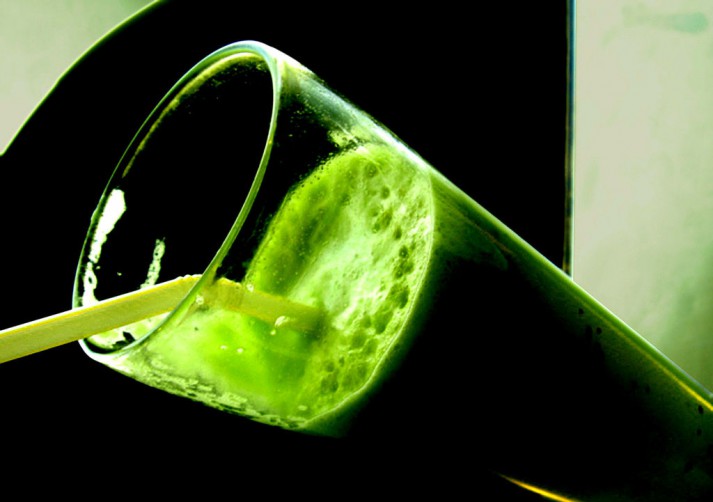
Simple enough – Stop eating and just drink this juice for the next three-ten days to get your body detoxed and lose a lot of weight! Although there are tons of different kinds of cleanses, most revolve around you not eating anything, and instead replacing all meals with a blended concoction of fruits and or vegetables.
PROS: You will lose weight. Duh. Instead of eating food, you’re just going to drink liquid calories and probably drink a fraction of the number of calories you consume on a regular basis. Because you’re not eating a lot of carbs or sodium (due to not eating solid food), you can potentially lose a tremendous amount of water weight early on (which is temporary, and isn’t the same as losing fat).
You’re probably eating more fruits and vegetables than you would have eaten otherwise (provided you’re blending up fruits and vegetables instead of just drinking fruit juice).
CONS: I’m going to guess that during these 3-10 days where you don’t eat any food, you are going to be absolutely miserable. If you are just drinking fruit juice in place of your meals, you’re essentially drinking sugar water (with much of the fiber and nutrition of the fruit removed).
The majority of the weight you lose during these three days will be water weight – depending on how much carbs/grains/sodium you normally consume, this weight loss can seem falsely dramatic.
As soon as you go back to eating the old way, that weight will come right back.
What I’d do instead: If you really want to detox, why not spend a few days eating lots of protein, spinach, kale, and broccoli (“a toothbrush for your colon”?). I’m not a fan of the term “detoxing,” which implies a temporary fix, but I’m all for it if it can kickstart you actually making positive permanent changes to your diet (see “diet and exercise” below).
Diet and exercise
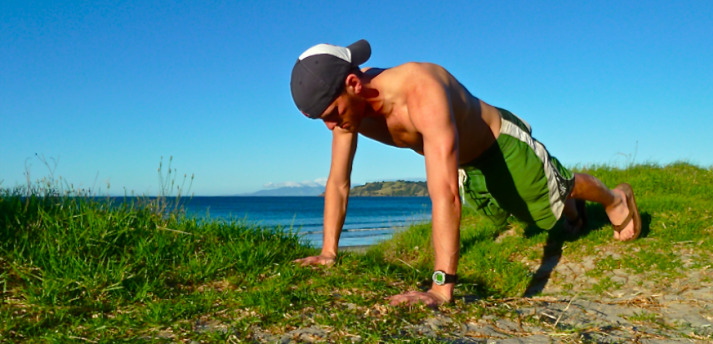
I read about this one on TV once, and figured I’d do my best to investigate.
Instead of buying a shake powder, confusing your muscles, ordering meals through the mail, or swapping out food for liquid, there’s this philosophy called “diet and exercise.”
It doesn’t require you to buy anything, oddly enough, but rather asks you to make an adjustment to how you live your life. The goal is to spend more time moving and less time sitting. Then focus on eating more real foods and less processed foods.
So, does this fad have legs? Or is this another money-grabbing plan designed to get you hooked on another proprietary technology or service?
PROS: Unlike almost EVERY SINGLE one of the systems above, which imply temporary fixes, “diet and exercise” is more of a lifestyle change that can last for the rest of your life.
Instead of drastically changing how you eat and move in the short term, you’re asked to make small changes that result in long term, permanent changes to your lifestyle.
- Instead of exercising with a DVD for 90 minutes every day, start with a walk.
- Instead of counting points, or getting meals in the mail, work on eating real foods .
- Instead of relying on something you NEED to be successful, you can find a way to be successful no matter where you are or what your situation is.
Diet and Exercise’s biggest pro: lifelong results. If you are on vacation, you’ve been educated on how to eat the right kinds of foods. If you don’t have access to a blender, or you can’t afford to order food through the mail, you know how to cook a basic meal. If you don’t have access to a DVD player, you can still complete a basic bodyweight workout or find a park to exercise in.
Diet and Exercise do not require you to spend any extra money or buy any fancy products or meals. You’re not restricting yourself and spending weeks being miserable, anxiously awaiting the day you can go back to your old lifestyle. Instead, this is just the new you: healthy and happy.
CONS: The biggest con I have with diet and exercise is that it actually requires commitment and change. There’s no shake in the mail, no DVD to follow, but rather you taking control of your health.
It’s also a challenge in that you actually need to make long-term changes to your diet. Eating cookies, pasta, cake, and muffins isn’t good for you, so you’re actually going to need to change that to see results.
It’s deceptively simple to learn but difficult to follow through with for many people who are just looking for a quick fix. We all know we need to exercise more and stop eating junk food, but we can’t force our brains to do it…which is why we need to educate ourselves on willpower.
Finally, the results are not instant. “Diet and exercise” can often require months of change before solid results can be seen. Compare this to a calorie restricted crash diet, or weight-dropping juice cleanse, and the scale might not move as dramatically
Final Word: This is our favorite fad of all. It’s the fad that’s helped the following people have success:
- Joe, who dropped 130 pounds in 10 months
- Staci, who got healthy and now powerlifts
- Bronwyn, a mother of three (two?) who dropped 40 pounds
- Saint, who went from 60 pounds overweight to six-pack for his wedding
This is what we’ve built our Nerd Fitness Academy around: education, systems for habit building, and support that give you the tools you need to succeed anytime, anywhere, for the rest of your life. No pills. No potions.
It’s not get-fit-quick, it’s get-fit-forever!
What else?

I’ve tackled the biggest and most popular diet/exercise programs out there right now, but I’m sure I missed a few. Leave a comment with your question and I can add it to the article.
Do you have any experiences with the above programs, good or bad? I’m sure if you have a thought/opinion, we have approximately 200,000+ people who would love to hear from you.
I’m personally excited to hear from you if you’ve done a bunch of the above and recently switched to “diet and exercise” – how have your results differed?
Let’s hear it in the comments below!
-Steve
###
photo source: Flavio: lego tunnel, Alan Cleaver: Start Today, fady habib: juice, porcupiny: shakeology, Shawn Honnick: nutrisystem, Sarahnaut: Weight Watchers, Jeanette Goodrich: Insanity


